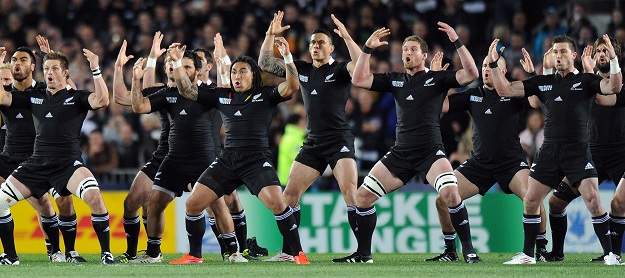Former All Blacks captain Sean Fitzpatrick tells Global about rugby rivalry, his sporting heroes and the power of sport to do good across international borders

Sean Fitzpatrick, one of the greatest rugby players ever to wear an All Blacks shirt, believes sport can be used as a powerful force for good across the Commonwealth and beyond. The retired rugby player now works with international sports body Laureus, which currently runs more than 140 sports-based community projects in 34 countries.
“It may be a bit simplistic, but I would compare the Commonwealth to a sports team, where the players can support each other more when they are together and working towards a common goal,” says Fitzpatrick. “There may be the occasional disagreement, discussions about tactics for example, but on the whole I see the Commonwealth as a good thing.”
But, as he quickly points out, sport can also create the fiercest and most uncompromising of rivalries.
“My dad was part of the New Zealand team who lost to Wales in 1953. He never set foot in Wales again. He passed away seven years ago and recently I was invited to see his playing shirt being unveiled at the Millennium Stadium. I had to decline because I could almost hear him shouting at me for even considering it.”
Fitzpatrick was talking to members of the Sports Journalists’ Association on the eve of the latest encounter between England and New Zealand. The corresponding fixture in 2012 had seen a rare All Blacks defeat by the English and Fitzpatrick left the gathered media in no doubt that the All Black’s attitude towards losing had not softened.
“They’ll remember everything that happened after the game, everyone who spoke to them, every Englishman that laughed at them. It will all be very much in their mind for this game. They will never, ever want to feel that way again.”
Despite this bitter hatred of losing, Fitzpatrick is equally convinced about the power of sport to bring people together and create a better life.
He is one of just 46 Laureus World Sports Academy members – sports people who have achieved the title ‘living legends’ – a group that leads and supports humanitarian projects around the world, using sport as the catalyst for changing lives. Members of Laureus include English cricketer Ian Botham, Great Britain’s Sebastian Coe, Indian cricketing hero Kapil Dev, Australian athlete Cathy Freeman and South African golfer Gary Player. And while Fitzpatrick more than holds his own among this exclusive band of men and women, he admits to being slightly star-struck on occasion.
“I sometimes feel as though I am a kid in a candy shop when I am with my fellow academy members – Hugo Porta, Morné du Plessis, Franz Klammer, Daley Thompson. The list goes on, but the one name that stands out for me is Laureus chairman and former athlete Edwin Moses. He was undefeated for nine years, nine months and nine days: an incredible 122 races.”
Since its inception, Laureus has raised more than €60 million for projects that have helped to improve the lives of 1.5 million young people.
“My own favourite Laureus moment came in March 2011,” says Fitzpatrick. “I was in Hong Kong when Laureus brought a group of youngsters from Soweto to visit the Hong Kong Sevens and also meet their counterparts at the Operation Breakthrough project in Hong Kong. The Soweto children had never been away from home before and this was just the experience of a lifetime for them. It was a totally magical experience.
“I caught up with these guys later in the year in Soweto and you could almost see they were different people from this one experience – more confident, more alive, more interested in what was going on around them. That’s what sport can do.
“I believe that people who play sport together can live together and sport is a great way to break down barriers and bring people together,” he adds. “Sport may not be why the Commonwealth exists, but look at how cricket helped to reconnect India and Pakistan.”
That is not to say that Fitzpatrick will be expecting his countrymen to show any compassion for their rivals when they take to the rugby field. “I am expecting England to leave the pitch feeling totally beaten up,” he said, with only the barest flicker of a smile.
A couple of days later, New Zealand beat England 30-22 in the QBE Autumn Internationals.
This article was originally published as ‘I would compare the Commonwealth to a sports team’





